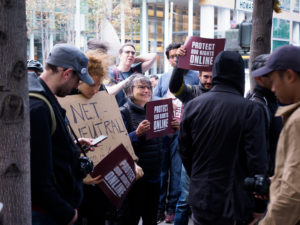
A week after 21 states and the District of Columbia filed a lawsuit against the FCC over its repeal of Net Neutrality, Montana Governor Steve Bullock signed an executive order protecting Net Neutrality in his state. The executive order points to oft-cited reasons for net neutrality as well as less conspicuous, though nonetheless relevant, ones. For example, public schools rely on the internet as a teaching tool in the classroom, so education will be affected. Also, the state government and its systems rely on the internet, and paid prioritization of the internet will deepen the inequalities between the rich and poor. Among other things, the order requires internet providers to make public the quality of their performance. It prohibits companies from blocking lawful content, throttling their services, unreasonably disadvantaging internet services, or advantaging their own services or content.
Other states, like New York, are attempting to circumvent the FCC’s rule change through proposals requiring providers doing business in their state to adhere to principles of Net Neutrality. At this point, it is unclear where and how the battle over Net Neutrality will end. At the moment, Democrats have a pledge for 50 votes to oppose the FCC’s ruling while Republicans are expected to propose a bill preventing states from passing Net Neutrality laws. It is unclear whether the courts will defer to the FCC’s discretion in regards to Net Neutrality as it did in 2016 or if they will judge on the merits of the case and overturn the FCC’s decision.
Dallin Earl is an Entertainment Highlight Contributor for the Harvard Journal of Sports and Entertainment Law and a current first year student at Harvard Law School (Class of 2020).
